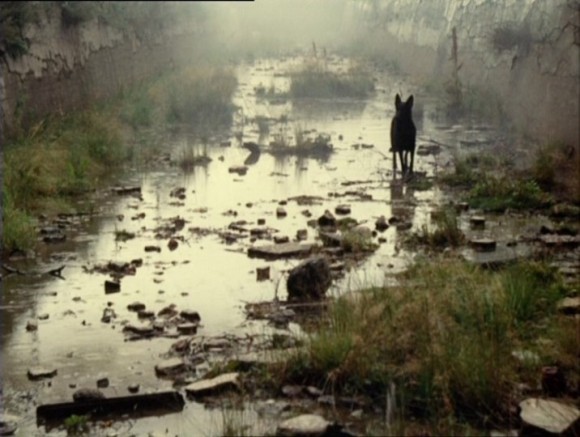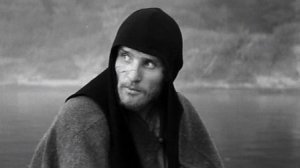Wow. The 70s was a great decade for Tarkovsky, wasn’t it? Two cerebral sci fi masterpieces with a semi-autobiographical fever dream in the middle. Stalker brings the decade to a close by presenting various visual and thematic rhymes that Tarkovsky had developed in Solaris and The Mirror. It’s also the best use of atmosphere I’ve yet seen in Tarkovsky’s work. So I guess I’ll talk about that…
Peter Guilherme
A Child of Godard and Pepsi
Monthly Archives: March 2013
Spring Break Tarkovsko-thon: The Mirror
Andrei Tarkovsky’s The Mirror is a dream-like semi-autobiography made up of scenes that are either flashbacks, memories, dreams or a combination of all three. It is unconventionally structured and deeply personal and it works when it really shouldn’t.
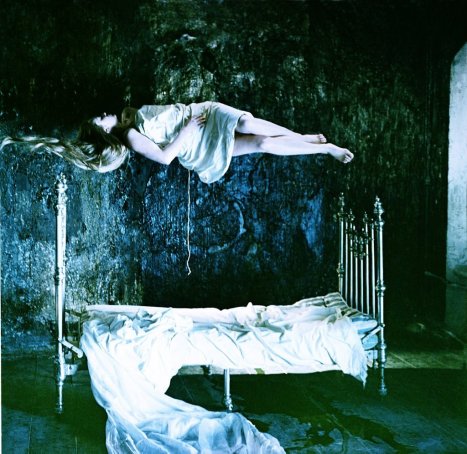
I don’t know why, but the fact that that one string is not floating is just the creepiest thing in the world to me…
The Mirror is responsible for some of the most beautiful and nightmarish images I’ve yet seen in a film. It twists and turns like that dream you had. You know, the one you that you can’t really figure out if it was a nightmare or not. Also, there’s one part where a character looks like the Sadako from The Ring.
Spring Break Tarkovsko-thon: Solaris
In his book Andrei Tarkovsky: Elements of Cinema, Robert Bird quotes Tarkovsky on the subject of colour.
“Tarkvosky noted that the only phenomena that are always perceived as colourful are sunsets and other ‘transitional states of nature’. To make the spectator see colour is thus to convey the transition within the represented object, corresponding to a change in texture.”
Solaris was the first colour film that Tarkovsky shot, and also his first science fiction film, which he will later return to. It was also the only of his movies I had seen before the Tarkovsko-thon, and for the record, I really enjoy just sitting in the beautiful cinematography and melancholic story. However, as the quote at the beginning of this post suggests, what I want to focus on is Tarkovsky’s esoteric use of colour in Solaris.
For the most part, Solaris is shot in vibrant colour, which as the quote above would indicate, means that Tarkovsky feels that the main character of Kris Kalvin is in transition in some way. This makes a certain amount of sense, as black and white is often a visual shorthand way of showing flashbacks or past events, and this is the first Tarkovsky film to be set in the future. At the same time, moments of monochrome do invade the film, and where they land, I think, is part of the key to understanding the film. 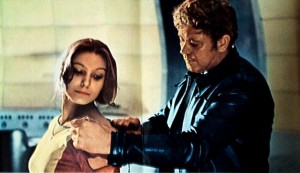
Spring Break Tarkovsko-thon: Andrei Rublev
I came into Andrei Rublev with great expectations. I was fully prepared to love it as much as I loved Ivan’s Childhood and Solaris (the only Tarkovsky film I’ve actually seen before this week). What I ended up getting was something not that interesting to me. I never really connected with Andrei as a character in the way I connected with Ivan or Kris, the spiritual elements seemed to be relegated to discussions of God, rather than a larger attempt to show the supernatural in the composition of the images.
Even though I found this movie a little boring, I’d like to talk about a feature of Tarkovsky films that I’ve noticed among the three I’ve already seen, the prologue.
Spring Break Tarkovsko-thon: Ivan’s Childhood
SPRING BREAK!
Anyway, I’ve finally got time to engage on a little project. Apart from having two rowing practices per day, I have a whole lot of nothing to do for the next seven days. In the past, I’ve used this opportunity to shotgun entire TV series in one shot.
It would be really cool to do reviews of, like a whole week of teen party movies to mark the occasion. I could see Spring Breakers and give my opinion and laugh at how terrible From Justin to Kelly is. It would be great.
But that would be too obvious.
Instead, I’ll be talking about the opposite of spring break: Soviet director Andrei Tarkovsky (or, as I sometimes incorrectly call him, Andrei Tartarkovsky). Every day I’ll be looking at a new film of his in chronological order. Today, I’ll be starting in 1962 with his debut feature Ivan’s Childhood.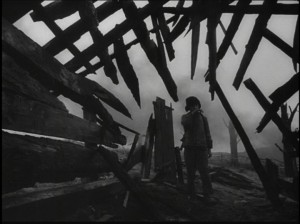
Peter’s Favorite Movies #1 : Sherlock Jr.
I’m going to try a project out. This year, I’ll be recommending my favorite movies. It’s a pretty rudimentary idea, but I need a way to get off my ass and write something every week. Let’s start with my favorite silent comedy: Sherlock Jr.
Every cinephile can be categorized according to their favorite silent comedian. Do you admire Charlie Chaplin’s physical grace and social themes more than the innovative camerawork of Buster Keaton? Or do Howard Lloyd’s sheer balls wow you more than either of them? In case you haven’t figured it out, I’m a Buster Keaton guy.
Here’s the main element of what makes Buster Keaton such a fun, engaging presence in movies to me. You can it best in my favorite silent comedy: Sherlock Jr.

This guy never gets beyond the table of contents of this book. (And don’t worry, that’s a fake mustache.)
